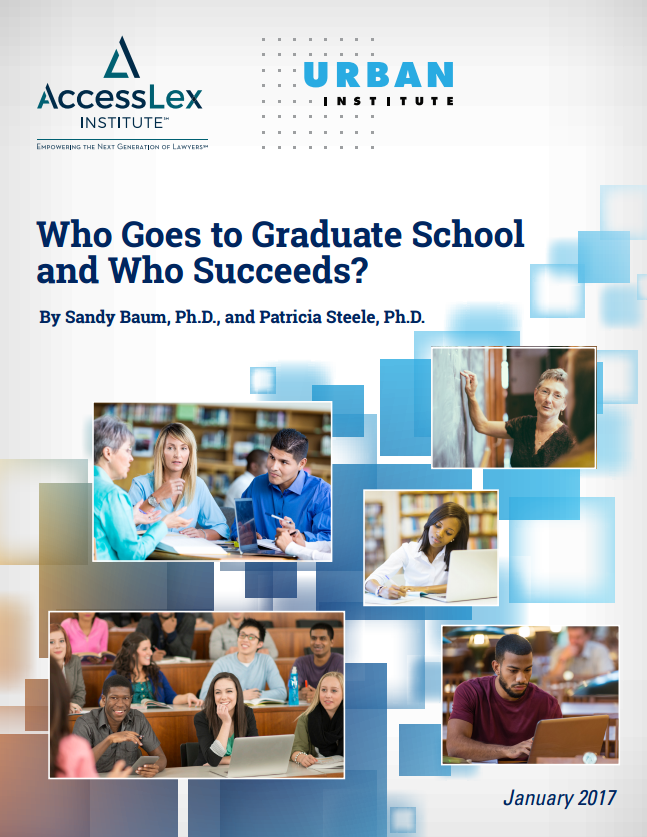Who Goes to Graduate School and Who Succeeds?

This brief is the first in a series addressing questions about enrollment and success in graduate school, funding of graduate students, the conceptual differences between undergraduate and graduate students, and the data available to address these questions.
By Sandy Baum, Ph.D., and Patricia Steele, Ph.D.
January 2017
Introduction
In 2015, 12 percent of adults in the United States ages 25 and older held advanced degrees—master’s, doctoral, or professional degrees.1 These 25.4 million people constituted 37 percent of the individuals who had completed bachelor’s degrees.2
During the Great Recession, those with college degrees fared much better than those without degrees, but a number of college graduates struggled to find satisfactory employment, leading many to graduate study. The option of seeking an advanced degree has gained momentum in recent decades, and now some observers call the master’s degree the “new bachelor’s degree.”3